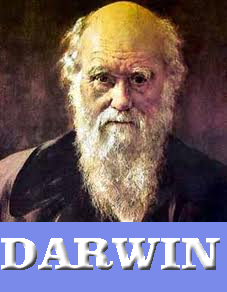 Over on FACEBOOK, a friend posted this question:
Over on FACEBOOK, a friend posted this question:
Is there anyone who can link me to some scientific studies backing evolution? Many are available but I need to find something that is easy to swallow.
One challenge for Darwin was to explain how species arrived. He suggested that isolation, eg
when some animals are separated from others, would create diversity simply because of the luck of whatever traits happened to be there .. for example better vision would be useful in animals that left the jungle for the plains. Of course binocular vision does not create a species but add that to isolation but other traits, eventually the isolated animals would eb so different that they were now a new species. Darwin used this to explain variation on birds isolated n different islands off of South America. Today, in the lab, we can and do create species by isolating organisms artificially and using selective condition to allow different species to take over the isolated populations.